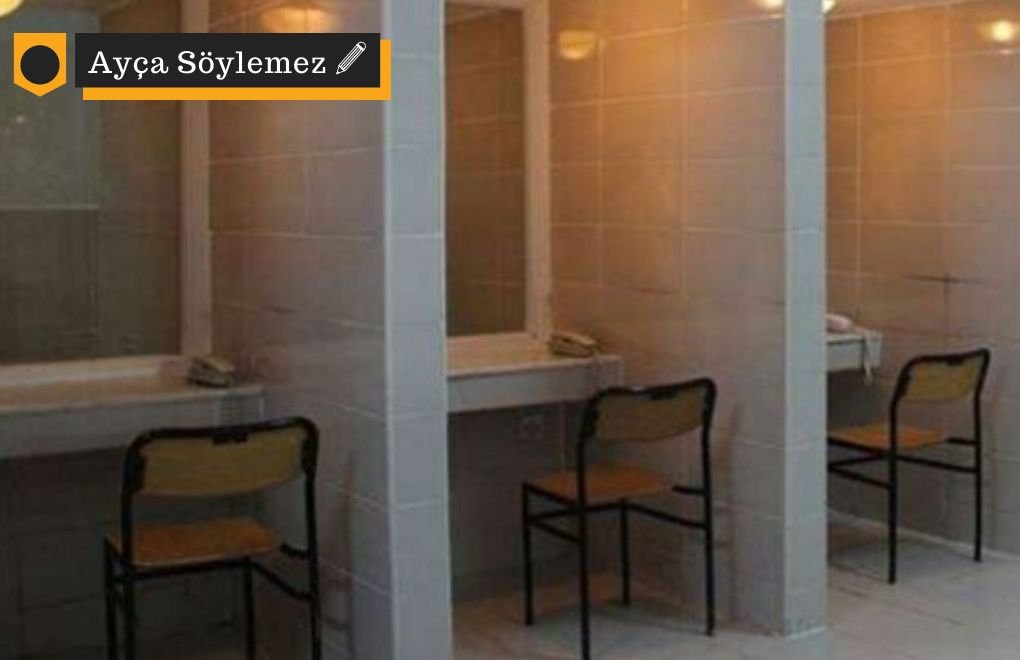Click to read the article in Turkish
In a detailed judgement announced today (July 7), the Constitutional Court has concluded that listening and recording the conversations between prisoners and their families in non-contact visits violates the right to respect for private and family life and freedom of communication.
Announcing its ruling on the application of Eşref Köse, who has been arrested in Bolu Type F Prison on charge of "organization membership," the Constitutional Court has ruled that the trial shall be held again so that the consequences of the violation can be eliminated. Köse will also be paid 6 thousand lira in non-pecuniary damages.
In non-contact visits, prisoners and their relatives sit face to face in separate and soundproof sections without any physical contact. However, as they can talk to each other on the phone, their conversations can be listened or, rather, tapped and recorded by the prison administration.
'Law doesn't foresee listening non-contact visits'
Indicating that there is no legal ground that allows the listening or recording of conversations in non-contact visits, Eşref Köse first applied to the prison administration, then to all related courts. With his all objections rejected, he made an individual application to the Constitutional Court.
In his applications, Köse noted that though the Article 66 of the Law no. 5275 foresaw the recording of phone calls, this provision did not apply to non-contact visits. He also added that the Article 7 of the Visitation Regulations were related with watching the non-contact visits.
Against this legal background, he argued that conversations during non-contact visits could not be heard according to the legal provisions.
Ministry: We listen to everyone
Köse also said that "his conversations with his family were tapped and recorded, that practice led to an isolation, his psychological state was adversely affected by this and he could not speak as he wished during the visits." Accordingly, he argued that his freedom of communication, right to respect for private and family life and right to a fair trial were violated.
As for the Ministry of Justice, which presented an opinion to the Constitutionl Court as part of this application, it indicated that the non-contact visits were held with the necessary technical and electrical devices as stipulated in the Article 7 of the Visitation Regulations, the applicant was not subjected to a separate regime of execution and the same measure was applied to all prisoners in high-security penal institutions.
'Conversations might involve intimacy, privacy'
In its justified ruling dated today (July 7), the Constitutional Court referred to the Article 13 of the Constitution:
"Fundamental rights and freedoms may be restricted only by law and in conformity with the reasons mentioned in the relevant articles of the Constitution without infringing upon their essence.
"These restrictions shall not be contrary to the letter and spirit of the Constitution and the requirements of the democratic order of the society and the secular republic and the principle of proportionality."
Accordingly, the Court has underlined that the conversations between prisoners and their relatives during non-contact visits might involve a certain intimacy and privacy and prisoners might act with the reasonable expectation that their privacy will be protected in these visits.
The justified ruling of the Court has also underlined that there is no legislation foreseeing or stipulating such a restriction:
"While the legal provisions indicate that an officer can be present at a distance where the conversations can be listened during a non-contact visit, it has been seen that there is no legal regulation pertaining to the listening of a visit with technical devices or their recording in a systematic manner." (AS/SD)












